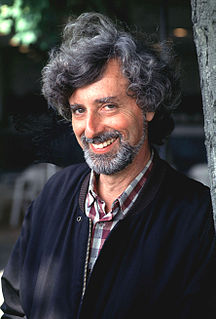A Quote by W. G. Sebald
Only in the books written in earlier times did she sometimes think she found some faint idea of what it might be like to be alive.
Related Quotes
Upon the whole, therefore, she found, what has been sometimes found before, that an event to which she had looked forward with impatient desire, did not in taking place, bring all the satisfaction she had promised herself. It was consequently necessary to name some other period for the commencement of actual felicity; to have some other point on which her wishes and hopes might be fixed, and by again enjoying the pleasure of anticipation, console herself for the present, and prepare for another disappointment.
...she needed to confirm its presence. Like the keeper of the lighthouse and the prisoner, she regarded it as a mooring, a checkpoint, some stable visual object that assured her that the world was still there; that this was like and not a dream. That she was alive somewhere, inside, which she acknowledged to be true only because a thing she knew intimately was out there, outside of herself.
You should read something else." Why would he have done that to him?" I don't know," she said. Do you ever feel like Job?" She smiled, a little twinkle in her eyes. Sometimes." But you haven't lost your faith?" No," I knew she hadn't, but I think I was losing mine. Is it because you think you might get better?" No," she said,"its because its the only thing I have left.
The doctor's wife wasn't a bad woman. She was sufficiently convinced of her own importance to believe that God actually did watch everything she did and listen to everything she said, and she was too taken up with rooting out the pride she was prone to feeling in her own holiness to notice any other failings she might have had. She was a do-gooder, which means that all the ill she did, she did without realizing it.
Once more September marveled that even the Dodo knew what she wanted to be when she was grown. She simply could not think what she herself might do. September expected that destinies, which is how she thought of professions, simply landed upon one like a crown, and ever after no one questioned or fretted over it, being sure of one’s own use in the world. It was only that somehow her crown had not yet appeared. She did hope it would hurry up.
I get goose-bumps when you talk about Diane Wilson. Who knows where she found that courage? When she was a child, she would crawl under the bed when a stranger came to the house. But in 1989, she found out that her county in south Texas was ranked worst in the country for toxic waste. She wondered if the effluent, dumped into the waters where she and her family had shrimped for generations, might be responsible for the dwindling fish populations. And she suspected that her son's autism might be related to the pollution.
Did you dream of me?" he asked. "Yes," she admitted grudgingly. She had. She'd dreamed of his hands caressing her, of his mouth devouring her. His lush lips inched into a surprised but pleased smile. "You were naked," she told him. His grin spread; his eyes gleamed with satisfaction. "And tied up..." He arched his eye brows in smug expectation. "I did not know the idea of bondage would please you." "Oh, I love the idea of typing you up." She paused dramatically. "Just like in my dream, you'll be secured to an ant-hill and the little things will eat you alive.
The techniques are all means of dealing with one simple idea: She wrote it. (That is, the "wrong" person--in this case, female--has created the "right" value--i.e., art.)
Denial of Agency: She didn't write it.
Pollution of Agency: She shouldn't have written it.
Double Standard of Content: Yes, but look what she wrote about.
False Categorizing: She is not really she [an artist] and it is not really it [serious, of the right genre, aesthetically sound, important, etc.] so how could "she" have written "it"?
Or simply: Neither "she" nor "it" exists (simple exclusion).
My mother was the first African-American policewoman in Seattle - recruited, actually - and she did it for only 2 years, as she did not want to carry a gun. She worked mostly on domestic disturbances. The NAACP wanted her to do it. She did not actually have the temperament to be a cop - she was very sweet. She had a Masters in social work.
She bent her finger and then straightened it. The mystery was in the instant before it moved, the dividing moment between not moving and moving, when her intention took effect. It was like a wave breaking. If she could only find herself at the crest, she thought, she might find the secret of herself, that part of her that was really in charge. She brought her forefinger closer to her face and stared at it, urging it to move. It remained still because she was pretending... . And when she did crook it finally, the action seemed to start in the finger itself, not in some part of her mind.
She knows where she's going, and what she has to do. She could, after all, find her way to Route 95 South blindfolded. She could do it in the dark, in fair weather or foul; she can do it even when it seems she will run out of gas. It doesn't matter what people tell you. It doesn't matter what they might say. Sometimes you have to leave home. Sometimes, running away means you're headed in the exact right direction.





































